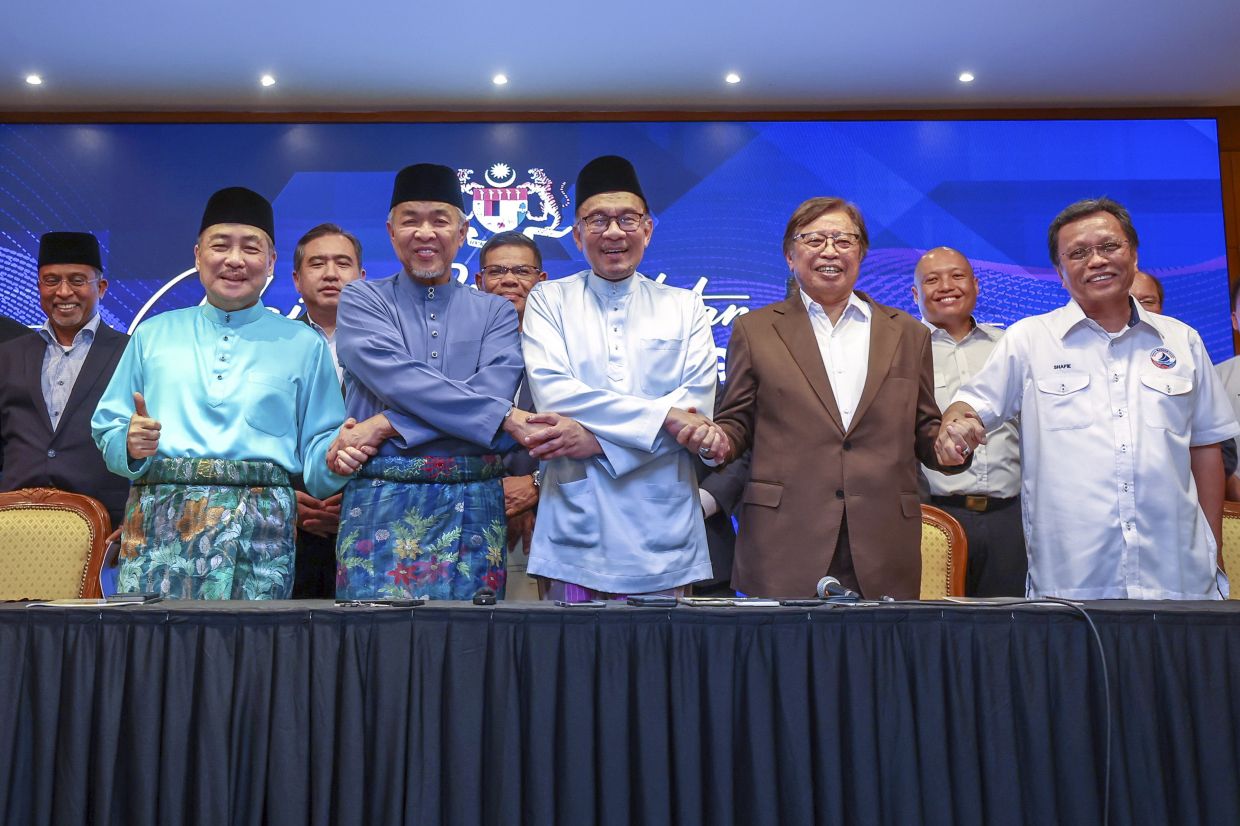
KUALA LUMPUR, Jan 12 — Malaysia went through a series of political changes in the past four years, resulting in three different federal governments. Last November, the country held a general election with the aim of obtaining a fresh mandate and ensuring stability. However, instead of a clear winner, the election resulted in a hung parliament.
This outcome has prompted many voters to suggest a relook at the electoral system to prevent a recurrence of a hung parliament in the future. However, experts contacted by Malay Mail have said that the possibility of future hung parliaments or coalition governments is not a cause for panic.
“A hung parliament is a normal occurrence in other democratic nations,” said Nusantara Academy for Strategic Research senior fellow, Azmi Hassan. He added that Malaysia’s appointment of a prime minister in just five days is relatively short compared to other nations, such as Israel which took almost two months to pick one after its election on November 1 last year similarly ended in a hung parliament.
It is worth noting that in recent years, many democratic countries have also experienced hung parliaments. The United Kingdom had two in 2010 and 2017, Australia had one in 2010, New Zealand had one in 2017, and France had one last year.
While some nations that hold elections do not often experience hung parliaments, a large portion of democratic countries also do not have a single party that is able to win an absolute majority on its own. Instead, they resort to coalition governments, much like Malaysia’s current government.
These countries include Japan, Indonesia, Germany, Italy, France, Denmark, and others across the globe. It’s worth noting that, Malaysia’s current government also a unity government and it’s also formed of several component parties just like the founding of Barisan Nasional.
When it comes to governing a country, is a majority government more desirable than a coalition government?
Professor William Case, the head of the University of Nottingham’s School of Politics, offers his insight.
He pointed out that majority governments are generally less fragile than coalition governments, but there is no certainty that they are better.
“A government made up of a single party, if disciplined, can better avoid splits, defections, and policy immobilism, such as with the People’s Action Party in Singapore,” said Professor Case. “However, in many cases, even single parties grow vulnerable to elite-level rivalries and the formation of distinct factions, like the Liberal Democratic Party in Japan or Umno in 1988.”
On the other hand, Professor Case believes that coalition governments can have their own strengths. He said that “Coalition governments, on the other hand, can sometimes institutionalize their unity and persist over long periods, like the Barisan Nasional or the coalition of the Liberal and National Party in Australia.”
Can changing our electoral system lead to a more stable government in Malaysia?
The electoral systems used around the world vary greatly. Malaysia’s “first-past-the-post” system requires candidates to win a simple majority of votes in their constituency to be elected. Other systems, such as Australia’s “alternative vote” system, ask voters to rank their preferences in order. If no candidate receives an absolute majority, the candidate with the least votes is eliminated and the ballots are redistributed according to the second choices.
In some European countries such as Sweden, “proportional representation” is used, where seats in parliament are allocated based on the percentage of votes a party receives. Some countries such as Germany and New Zealand use more complex hybrid systems that elect different portions of their parliament through different systems.
Despite predictions of benefits, such as not wasting votes or being more representative of voter preferences, analysts agree that all systems have drawbacks. Additionally, none have shown to be clearly better at creating strong governments.
Singapore Institute of International Affairs senior fellow Oh Ei Sun noted that Germany and New Zealand, which have hybrid systems designed to minimize problems, are not in a better situation than Malaysia. “This is vividly demonstrated by the fact that at the moment Germany also has a coalition government and New Zealand a minority government,” he said.
Oh believes that the present political turmoil in Malaysia is mainly due to the need for a prime minister to constantly maintain a parliamentary majority. He suggested that perhaps the pre-1998 Indonesian model can be referenced